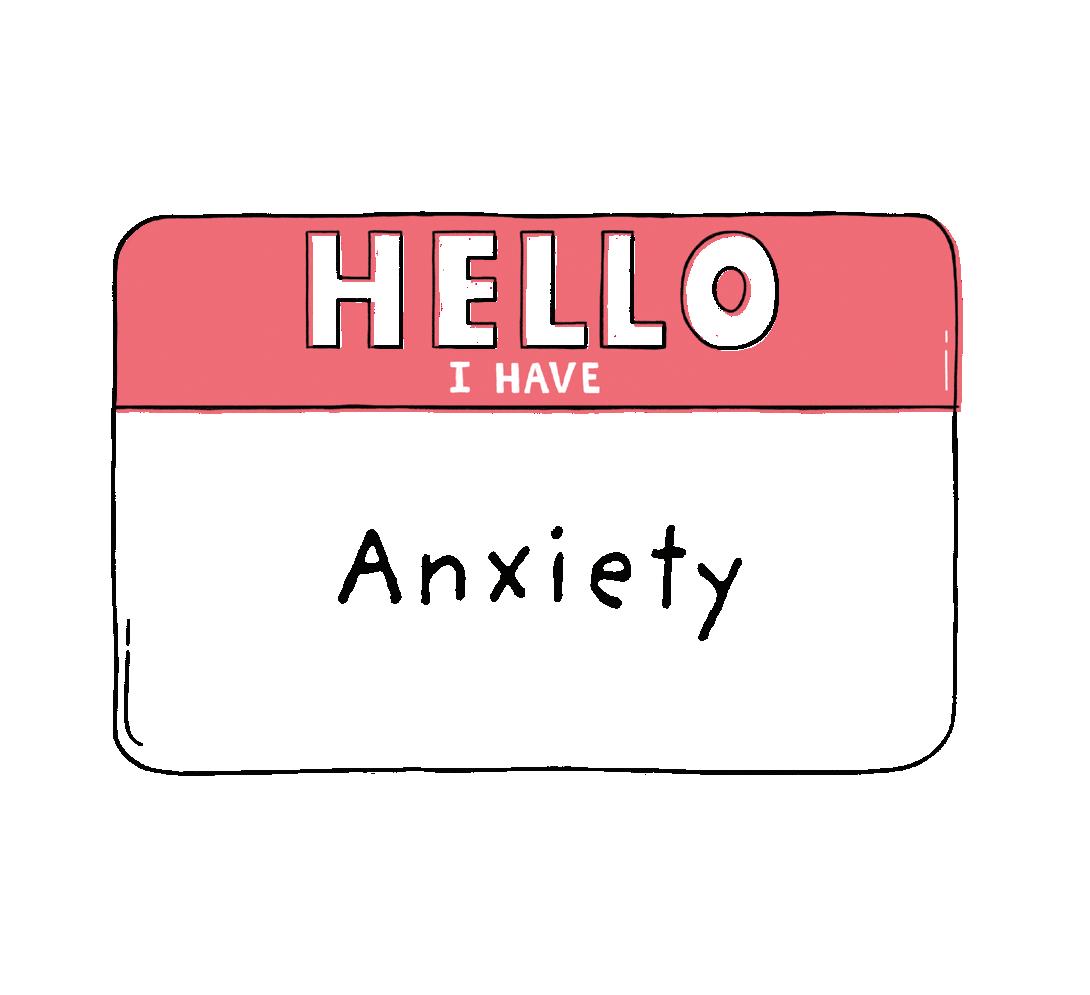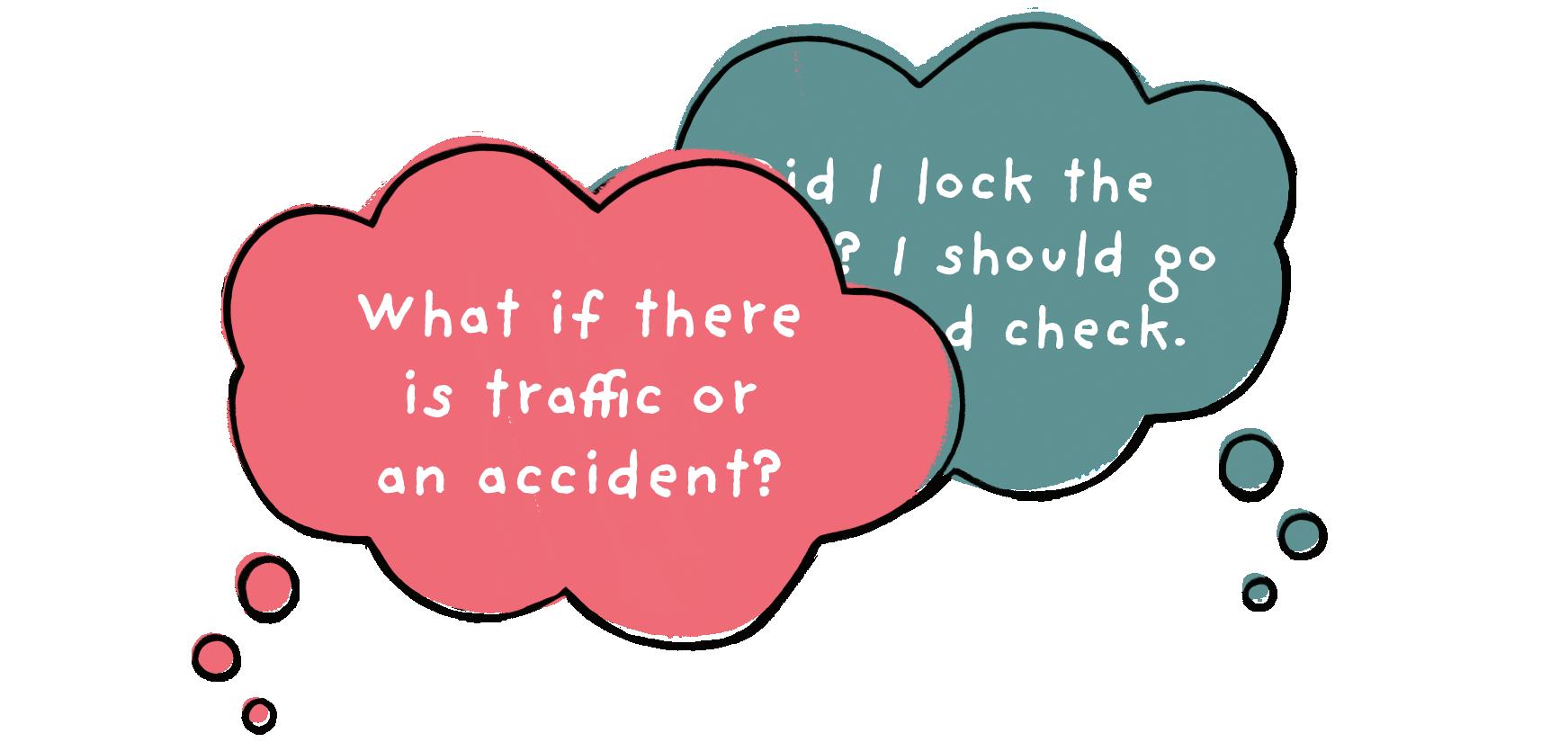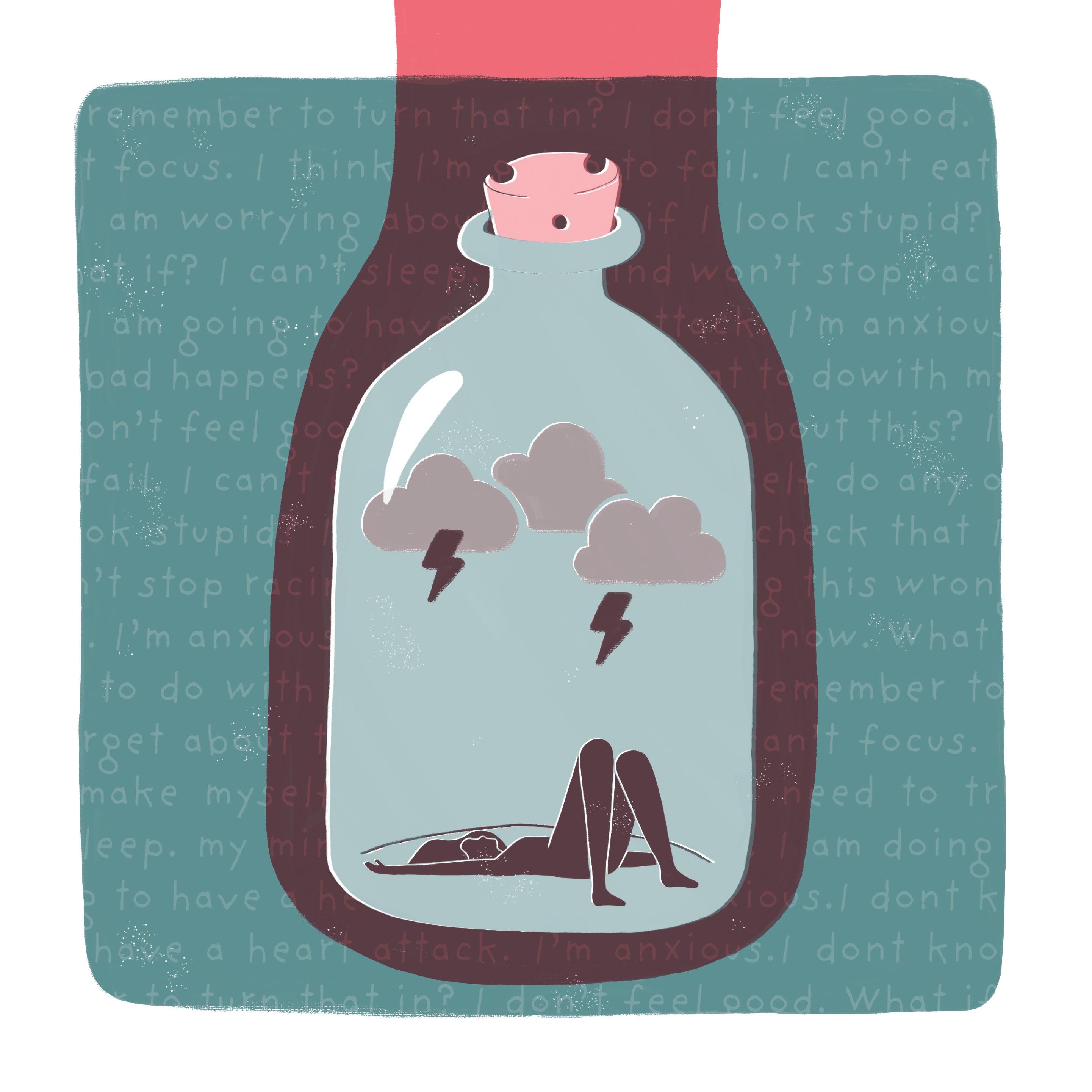
5 minute read
What You Don’t See
While not glaringly obvious to those who do not suffer from anxiety, there is a stigma attached to the disorder. It tends to be something you feel more than you see. Nonetheless, it is very apparent in our society and doesn’t seem to be going anywhere any time soon. Meaning that those with anxiety suffer from more than just the disorder. They also must combat the defining label of living with a mental illness. This chapter will focus on the portrayal of anxiety through the media and our culture. Then, it will analyze the direct effect that has on those suffering from the disorder. Finally, this chapter will reassure you that you are most definitely not alone.
Overcoming Stigma
Advertisement
Drowning in stigma, anxiety is characterized as weak, irrational, unstable, and a joke. I could go on, but I think you get the point. These ideas have been portrayed to me since I was a child. Growing up, one of my favorite movies was Walt Disney’s, The Little Mermaid. Let me give you a brief explanation of the characters for those who have never seen the film. Ariel, the main character, has a best friend named Flounder. While Ariel is cool, calm, collected and ready for adventure, Flounder is a worrying, nervous killjoy. I understand that this is a cartoon with emphasized personalities. It’s okay for a character to display anxiety as a trait. However, It becomes a problem when that trait is their whole personality. Not only is the anxious character used as a joke, but they are also implying that anxiety is the only personality trait of that person. This burdens those struggling with anxiety with the label of being overly sensitive, and negative. As a child, I can remember not liking Flounder because I thought he was annoying. Unconsciously, this idea of connecting anxiety and being that unlikeable character has stayed with me to this day. I often worry about coming off as annoying to people or being too pessimistic, resulting in me being quiet and privately suffering.
These stereotypes of sensitivity and negativity surround anxiety. Not-so-subtle references are abundant through movies, TV, and media in the 21st century, and these concepts have been comfortably adopted into our society. This social adaptation to the characterization of anxiety afflicts shame on people with the disorder. Judging someone solely for their mental illness, especially when there is so much more to people, is cruel. This
stigma is damaging the way people with anxiety see themselves. People don’t want to be immediately judged as the walking stereotype of mental illness, and it contributes to the difficulty of accepting it within yourself. It is important to dismantle this reputation and the way to do that is by recognizing and addressing the misconceptions in society’s assumptions.
While it may be hard to accept, the reality of anxiety is not what is portrayed by pop culture. It is not something to be ashamed of. One of the most disappointing stereotypes that I have seen associated with anxiety, is the idea that those who have it are weak. People may assume that you can’t handle reality or are too sensitive just because you are more likely to react negatively to a stressful situation. I would argue that people who have anxiety are the strongest people I know. Those suffering from a mental disorder know just how much work it
takes to get through the day. They are doing two times as much to fit into the standards held by our society. We live in a world where mental disorders are not taken into account as something people live with. Our culture prioritizes work and money over mental and physical health. This leaves people suffering from anxiety constantly feeling the need to prove themselves. Every day is a battle when trying to fit into a world where everyone is expected to conform to the mold of perfectionism. Not only does someone with anxiety get ready for the day by getting dressed, making breakfast, and starting their commute, they also are fighting back the demons of their mind. These negative voices convince them they are going to be late or make them perpetually worry about the chance that they forgot something. It is exhausting. The amount of mental strength you need to get through the day is tremendous. Having anxiety does not make you weak. Don’t let having an off day or slipping up break your spirit. If anything, I say be proud of your anxiety because it means you are tough. You are climbing a mountain with extra weight on your shoulders, and I admire your tenacity.

You Are not Alone
About 1/8 of the world’s population suffers from some form of anxiety, making it one of the most common mental disorders around the world (Shri 100). That means you, yes YOU, have no excuse to believe you are going through this alone. I know the black hole of negativity sucking you inside when you start to feel uneasy. It’s easy to single yourself out as the only one suffering because you don’t know what the people around you are going through. This might surprise you, but most of the time, you can’t see anxiety. Many people put on that mask of “I’m fine,” even when on the inside, all hell is breaking loose. The image associated with anxiety by movies and TV shows is not reality. People are not walking around hyperventilating at the smallest inconvenience (even if they are feeling that way inside). This idea plays into the negative connotations around anxiety. Just think about all the ways that you conceal your anxiety from others.
Using myself as an example, I have had numerous internal panic attacks in social situations, like class or even game nights with friends. Later, I would confess to some only to be informed that they had no idea. *Cough * I’m still waiting on my Oscar for those performances by the way *cough.* Getting back to the point, just because those around you don’t wear their anxiety on their sleeve does not mean you are isolated in these experiences. Remembering that everyone has that little bastard sitting in the back of their head, oddly brings peace to the situation. If you are ever finding yourself feeling alone or with no one to talk to, an option like group therapy or an online support group might be a great outlet. You are in no way abnormal and you are most definitely not alone. Don’t be afraid, reach out to people.
34 • Living with Anxiety
Part Two
How to Manage Anxiety









